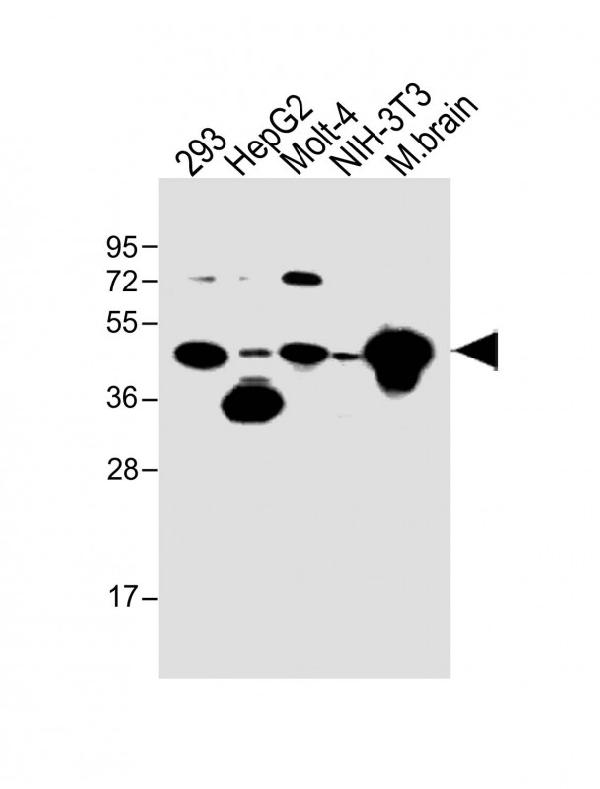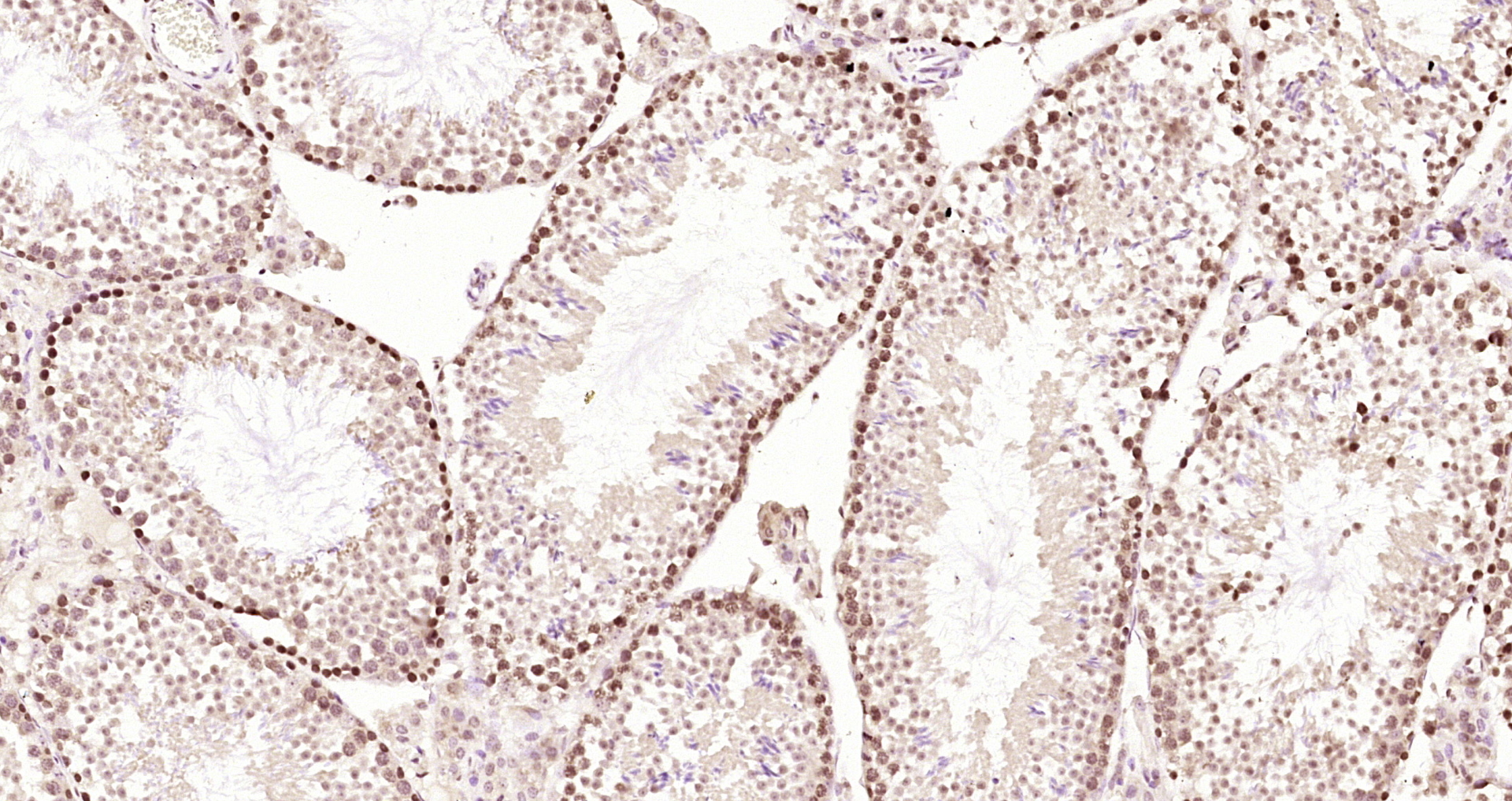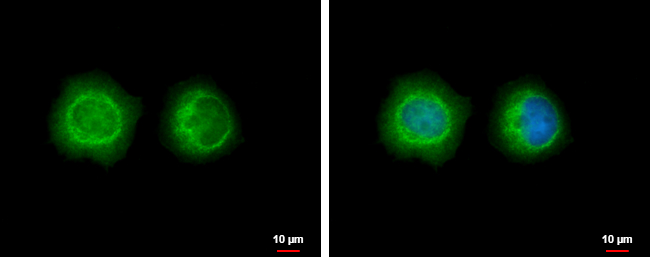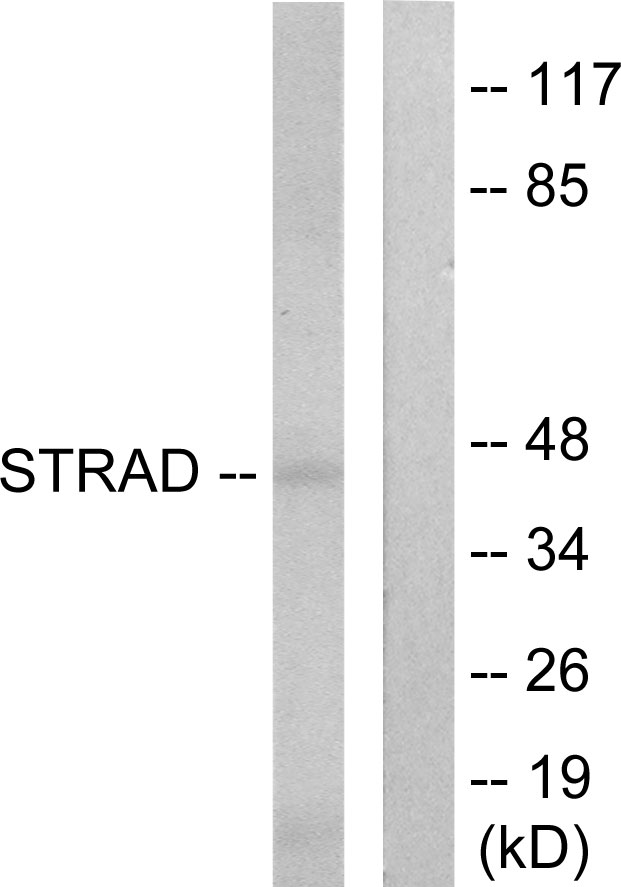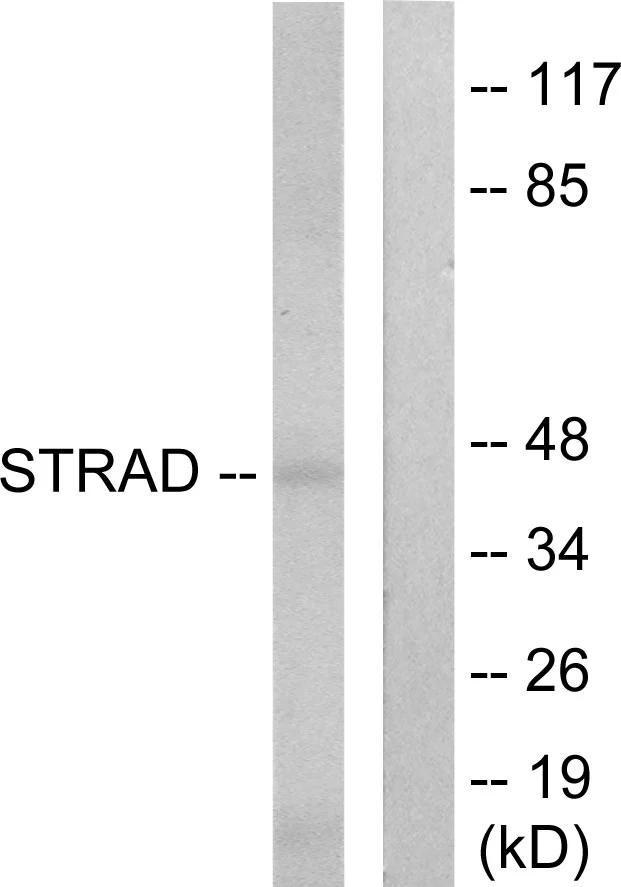
WB analysis of HepG2 cell lysates using GTX87312 LYK5 antibody. The lane on the right is blocked with the synthesized peptide.
LYK5 antibody
GTX87312
ApplicationsWestern Blot
Product group Antibodies
ReactivityHuman
TargetSTRADA
Overview
- SupplierGeneTex
- Product NameLYK5 antibody
- Delivery Days Customer9
- Application Supplier NoteWB: 1:500~1:1000. *Optimal dilutions/concentrations should be determined by the researcher.Not tested in other applications.
- ApplicationsWestern Blot
- CertificationResearch Use Only
- ClonalityPolyclonal
- ConjugateUnconjugated
- Gene ID92335
- Target nameSTRADA
- Target descriptionSTE20 related adaptor alpha
- Target synonymsLYK5, NY-BR-96, PMSE, STRAD, STRAD alpha, Stlk, STE20-related kinase adapter protein alpha, STE20-like pseudokinase, STE20-related kinase adaptor alpha, protein kinase LYK5, serologically defined breast cancer antigen NY-BR-96
- HostRabbit
- IsotypeIgG
- Protein IDQ7RTN6
- Protein NameSTE20-related kinase adapter protein alpha
- Scientific DescriptionThe protein encoded by this gene contains a STE20-like kinase domain, but lacks several residues that are critical for catalytic activity, so it is termed a pseudokinase. The protein forms a heterotrimeric complex with serine/threonine kinase 11 (STK11, also known as LKB1) and the scaffolding protein calcium binding protein 39 (CAB39, also known as MO25). The protein activates STK11 leading to the phosphorylation of both proteins and excluding STK11 from the nucleus. The protein is necessary for STK11-induced G1 cell cycle arrest. A mutation in this gene has been shown to result in polyhydramnios, megalencephaly, and symptomatic epilepsy (PMSE) syndrome. Multiple transcript variants encoding different isoforms have been found for this gene. Additional transcript variants have been described but their full-length nature is not known. [provided by RefSeq, Sep 2009]
- ReactivityHuman
- Storage Instruction-20°C or -80°C,2°C to 8°C
- UNSPSC12352203

